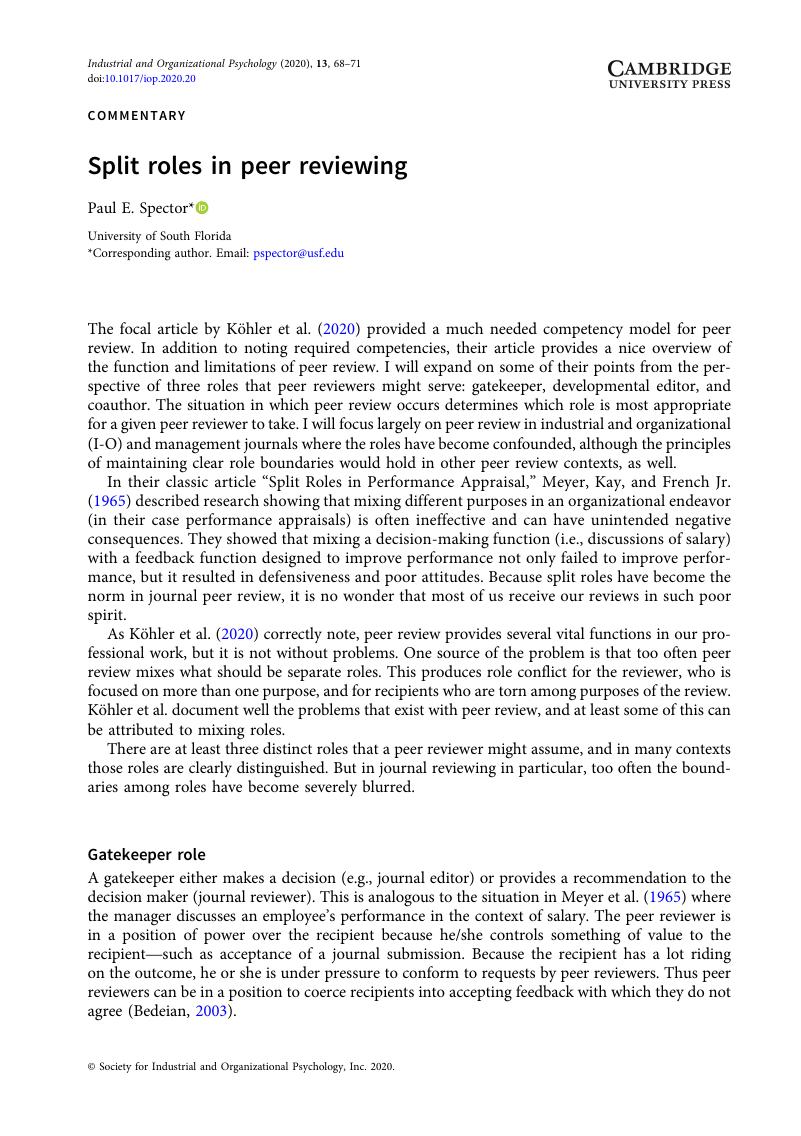No CrossRef data available.
Article contents
Split roles in peer reviewing
Published online by Cambridge University Press: 01 May 2020
Abstract
An abstract is not available for this content so a preview has been provided. Please use the Get access link above for information on how to access this content.

- Type
- Commentaries
- Information
- Copyright
- © Society for Industrial and Organizational Psychology, Inc. 2020
References
Bedeian, A. G. (1996). Improving the journal review process: The question of ghostwriting. American Psychologist, 51, 1189.CrossRefGoogle Scholar
Bedeian, A. G. (2003). The manuscript review process: The proper roles of authors, referees, and editors. Journal of Management Inquiry, 12(4), 331–338. doi: 10.1177/1056492603258974CrossRefGoogle Scholar
Köhler, T., González-Morales, M. G., Banks, G. C., O’Boyle, E. H., Allen, J. A., Sinha, R., … Gulick, L. M. V. (2020). Supporting robust, rigorous, and reliable reviewing as the cornerstone of our porfession: Introducing a competency framework for peer review. Industrial and Organizational Psychology: Perspectives on Science and Practice, 13(1), 1–27.CrossRefGoogle Scholar
Meyer, H. H., Kay, E., & French, J. R. P. Jr. (1965). Split roles in performance appraisal. Harvard Business Review, 43(1), 123.Google Scholar


